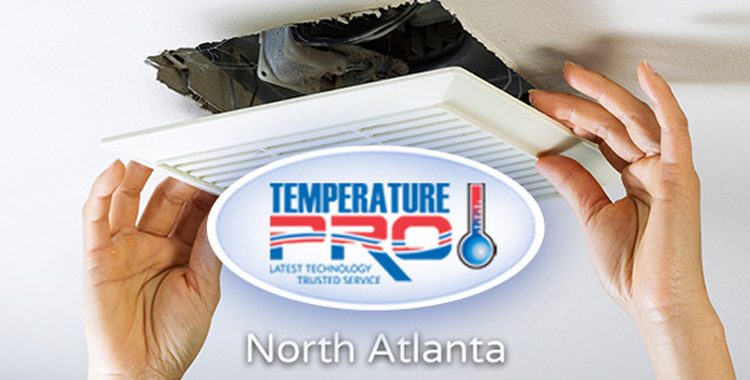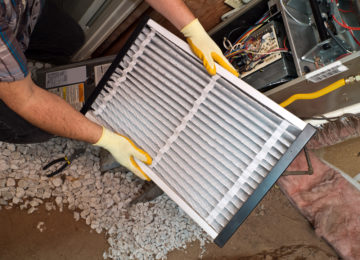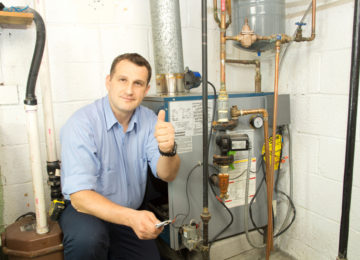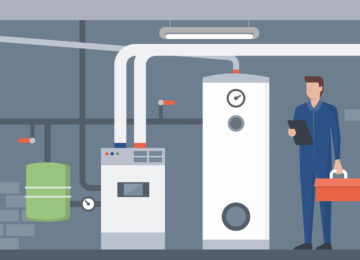At TemperaturePro, we talk a lot about the importance efficiency, cleanliness, and optimization. We like to empower HVAC owners everywhere with some of the expertise we have, and we always advocate for proactive behavior on the owner’s part. That said, one of the things we find ourselves talking about a lot is air filters, and how important they are. We’re always telling customers to make sure they change their filters on a regular basis and to ensure there is a clean one in their system.
With all this talk about air filters, we felt it was only right that we dedicate a blog to the relevant facts about filters, what kinds there are available and what the rating system means. We hope you can put this knowledge to good use next time you are shopping for or replacing an air filter!
Facts:
A dirty air filter is the number 1 reason for HVAC system failure. A dirty filter will restrict airflow and put additional strain on your system.
Air filters have direct effects on how long your HVAC system will sustain a high level of performance.
Air filters are the simplest ways homeowners can increase the indoor air quality in their home.
MERV Ratings
Air filters are rated on how well they catch particles and pollutants circulating through your ducts and airways. These ratings are called MERV ratings, and they’re pretty easy to understand. They’re your best indicator to what kind of air filter you are getting, and typically become more expensive the more effective they are.
An important thing to note for anyone in the air filter market is this: just because the MERV rating is high, does not mean you should purchase that filter. They higher the rating the more pollutants the filter catches, but it also restricts air flow at a higher rate. So what you save in air pollutants could cost you in energy if your HVAC increases its output to counteract a slow airflow. It is best to consult an expert to find out what your needs are, and what air filter will best fit those needs.
Fiberglass Filters
Fiberglass filters are your standard, every day, air filters. They’re effective at what they do, cost-efficient, and easy to change. They have a MERV rating at about 4 and remove 10% of the pollutants in your air. They’re effective at both removing particles from the air and allowing air to flow freely.
Polyester Filters
Polyester filters are a step above fiberglass, as they have a higher MERV rating between 8 and 13. They cost a little more as well, but the benefits are substantial. They do restrict air flow a little more than fiberglass filters, but depending on your situation that may not be an issue. If you find that you suffer from allergies more than most people, or if your home is surrounded by pollinating plants, this may be the best choice for you!
Washable Filters
The great thing about washable filters is that they can last you years when the other options last months. You purchase it one time, and instead of replacing it every few months you just clean it and put it back in your system. This makes them the obvious choice regarding cost-effectiveness, as it’s a one time purchase of about $20. Other filters range around $5, but you have to buy them multiple times a year.
Despite their cost-effectiveness, they do have a low MERV rating and can become a problem in your system if not taken care of properly. This air filter is for the HVAC owner who will diligently clean it every few months.
High-Efficiency Filters
High-efficiency air filters are the top-of-the-line model air filter that can remove up to 85% of the air pollutants in the air. That said they cost about $25 and restrict air flow significantly. High-efficiency air filters are typically not suggested to homeowners because of that reason. If the air is not flowing in your home, you could end up having stagnant air inside your home.
High-efficiency filters are ordinarily suggested to businesses and hospitals where a clean environment is a necessity. In these situations, you can compensate the low airflow with higher HVAC use or other mechanisms, which can be afforded by businesses and hospitals. Unfortunately, you can’t say the same thing for homeowners.
Let TemperaturePro Find Your Perfect Air Filter Today!
When it’s time to buy a new air filter, give us a call! We can walk you through the process and answer any questions you may have, and make sure you find the perfect air filter for your needs!




